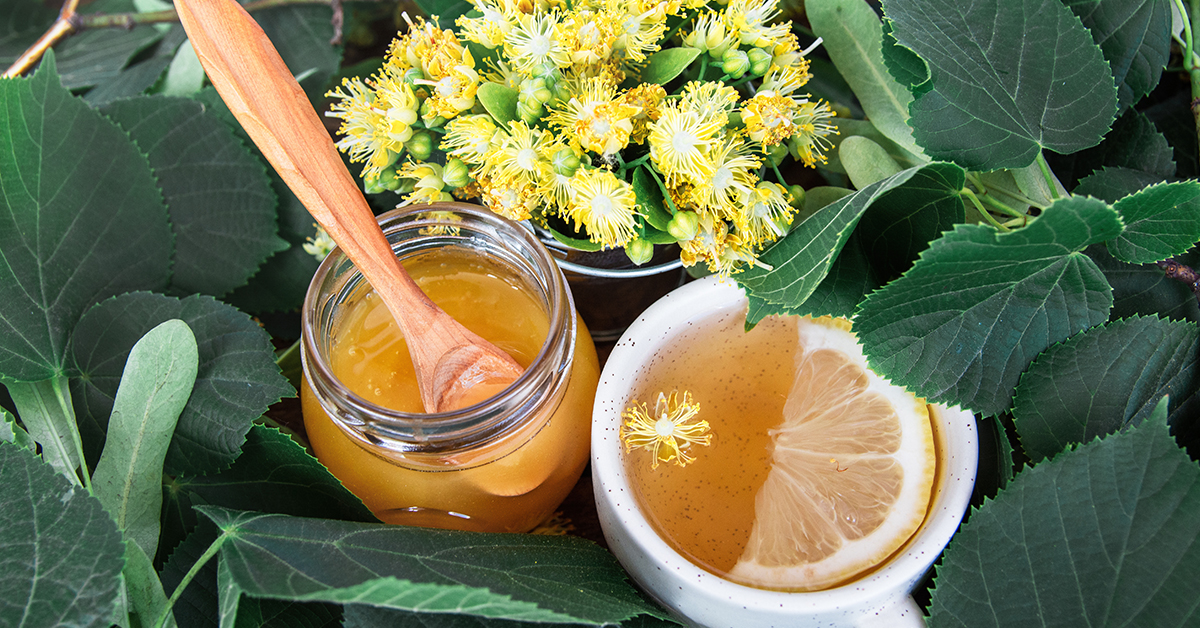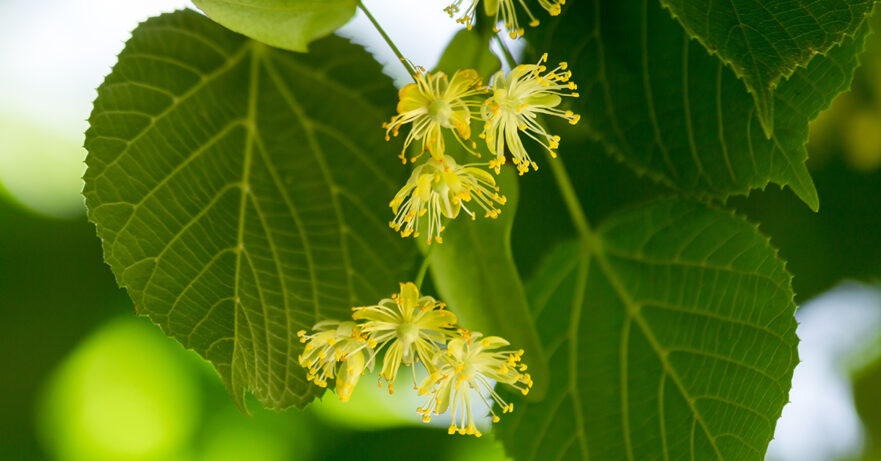In this monograph about tilia:
📖 Introduction | 🌱 Botanical Description | 📜 Traditional Uses | 🔍 Phytochemistry | ✨ Applications and Uses | 🛡️ Safety Profile
📖 Introduction
Tilia, commonly known as linden or lime tree belongs to the Tiliaceae family and is highly esteemed in herbal medicine for its calming and soothing properties. The flowers of the tilia tree have been traditionally brewed into tea, known for its pleasant taste and health benefits, particularly in European folk medicine.
Tilia tea is cherished for promoting relaxation, easing anxiety, and supporting cardiovascular health.
| English Name | Tilia, linden or lime tree |
| Latin Name | Tilia spp. |
| Parts Used | Flowers |
| Traditional Uses | Promoting relaxation, easing anxiety, improving sleep quality, supporting respiratory health |
| Herbal Actions | Nervine, antispasmodic, anti-inflammatory, diaphoretic, hypotensive |
🌱 Botanical Description
Scientific Classification
The genus Tilia, part of the Tiliaceae family, comprises several species, including Tilia cordata (small-leaved lime) and Tilia platyphyllos (large-leaved lime), among others.
Physical Characteristics
Tilia trees are known for their heart-shaped leaves, fragrant creamy-yellow flowers, and small nut-like fruit. The trees can grow to significant heights and are often found lining avenues and in parks.
Natural Habitat and Cultivation Details
Native to the Northern Hemisphere’s temperate regions, tilia trees thrive in well-drained, fertile soils. They are commonly found in wild forests and cultivated landscapes across Europe and North America.
📜 Traditional Uses
Tilia flowers have traditionally been used to alleviate stress and anxiety symptoms, promote sleep, and support respiratory health. Its use in folklore includes rituals for protection and healing, embodying a sense of tranquility and peace.

🔍 Phytochemistry (Active Constituents)
The beneficial effects of tilia are attributed to its rich composition of phytochemicals, including:
- Flavonoids: These are known for their antioxidant and anti-inflammatory properties, contributing to cardiovascular health and stress relief.
- Mucilage: This provides a soothing effect on the throat and digestive tract, beneficial for coughs and mild digestive discomfort.
- Coumarins: These compounds may possess mild blood-thinning properties but should be used with caution in individuals on anticoagulant therapy.
- Tannins: Offering mild astringent properties, tannins support skin health when applied topically.
- Volatile oils: These include farnesol, which contributes to tilia’s calming effects and pleasant aroma.
✨ Applications and Uses
In herbal medicine, tilia is utilized for:
- Relaxation and stress relief Tilia tea is popular for its relaxing effects, helping to reduce anxiety and promote a sense of calm.
- Sleep support:: Its mild sedative properties are valued for improving sleep quality and assisting those with insomnia.
- Respiratory health: Tilia flowers’ mucilage and volatile oils are known to soothe the throat and relieve symptoms of colds and coughs.
The use of tilia for these health benefits is supported by its diverse phytochemical profile, highlighting its role in promoting well-being and relaxation.
🛡️ Safety Profile
Tilia is generally considered safe for most people when consumed in moderate amounts as part of a balanced diet.
There is limited evidence of significant adverse effects from the routine use of tilia tea.
Nonetheless, as with any herbal remedy, it is wise to use it responsibly and be mindful of individual health conditions.
Pregnant and breastfeeding women should consult a healthcare provider before using tilia products.
Likewise, individuals with pre-existing health conditions or those on medication are advised to seek professional advice before incorporating tilia into their health regimen.
